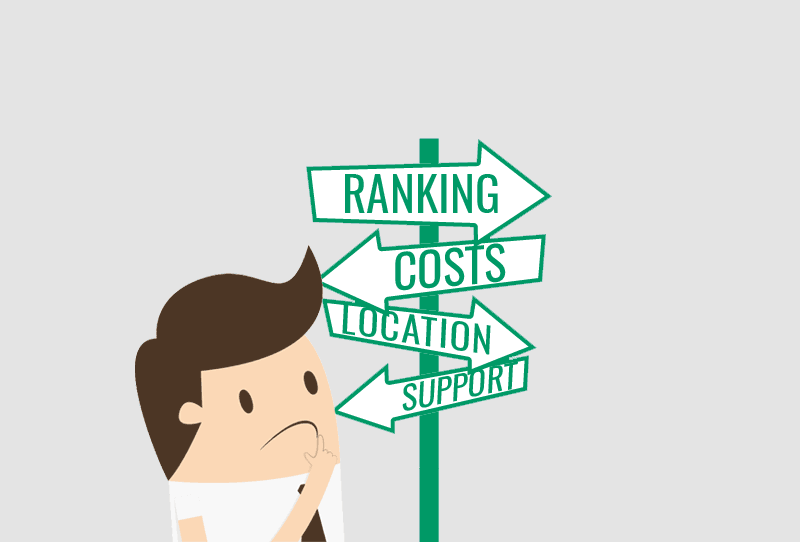When looking to get into Forex trading, the new trader is bombarded with massive amounts of ads, offers, and, of course, online forum noise. In this article, I will try to analyze some of the most important issues to consider when choosing a Forex broker. After all, the most important function of a Forex broker is to enable it to trade with the liquidity provider, and at the end of the day, most features work similarly. However, that does not mean that there are some things I should pay close attention to.
Are they all regulated?
Surely the most relevant thing to keep in mind is whether the Forex broker you are choosing is regulated or not. In addition to that, the place where they are regulated is also important. Unfortunately, not all regulatory bodies are the same, and therefore, some traders are absorbed by reputable brokers because of this reason alone.
The regulation allows the trader to feel somewhat protected, as there is a government agency that is paying attention to what the Forex broker is doing. Years ago, when Forex trading was something new to retail traders, there were many nefarious companies out there willing to take their money.
Since then, we have seen an adjustment and maturation of the industry, so almost all Forex brokers are regulated at this point. If they are not, it is a great red flag and must be avoided at all costs.
Apart from this, the standard regulation in a country like the UK or Germany is very different from regulation in a country like Belize. Some of the stricter regulatory regimes can be found in the UK, the US, the EU, Australia, and Japan. In short, countries with more advanced economies often have better regulatory protections for the retail Forex trader. It is important to note that some countries, such as the United Kingdom, offer deposit protection insurance, which means that even if your agent goes bankrupt, the government will eventually reimburse you for the balance of your account.

What products do you offer?
Obviously, you need to know if the broker you are interested in offers the markets you want to trade. For example, if you want to exchange the CAD/JPY pair, the broker must offer it. Not all brokers offer all currency pairs. There have been brokers I have seen offering only 10 pairs, but I have seen other brokers offering several hundred. In general, larger brokerage firms will offer at least 25 pairs, quite often 40. Some of the most institutional liquidity and brokerage providers may offer several hundred, giving you the opportunity to engage in exotic trades. Make sure you can get the product you are looking for before completing the paperwork.
ECN or operating table?
An electronic communication network, or ECN, links orders directly to each other, making the market transparent and fair. Trading Table Brokers, on the other hand, will seek to match orders or trade directly with you. A reputable broker will follow the rules and regulations of the regulator and treat it fairly regardless. It may be considered foolish to say this, but experience has dictated that there is no difference in the type of brokerage I choose, although the differentials may vary greatly between these two different models. Normally, if you get an ECN Broker to facilitate your order, you will be charged less and extended, but you will be charged a commission. One area for which ECN works best is scalping, as it allows quick entry and exit operations and you don’t have to worry about any desktop delays. If you want to scalp, keep in mind that many brokers do not allow scalping-style trading, so be sure to check it out.
Analysis
Some brokers offer expert analysis, while others do not. It all comes down to whether or not you need some extra help to form trading ideas, or whether you’re comfortable trading on your own. However, beyond that, there are many places online where you can find a lot of analysis for free.
Extras
Some brokers will go beyond the usual calendar and announcements and offer many extras. Sometimes those are deposit bonuses, sometimes they’re webinars or even trading education. Again, all this can be found free online, but some Forex brokers have pretty good educational sections for example. Imagine something like buying a car, you can opt for the reduced version, which is always cheaper, or you can buy a more expensive model that comes with all the accessories as standard. Brokers are a lot like this.

CFDs Offered
Let’s not forget the CFD market. Unfortunately, CFDs are not available for trading everywhere (as in the United States). However, most of the world allows CFD trading, and this is something to pay attention to. If you have the ability to conduct Forex trading, why not do index trading or crude oil trading? This gives you the possibility to trade with the world in a single account, which, of course, has a great advantage if you understand the correlation between markets. One of the main advantages that the rest of the world has over the United States is the ability to carry out trading in these markets since it is not necessary to enter through a full futures contract to make trading with natural gas, You can just put a small amount of margin.
Longevity
Just like any other business, the better you treat your customers, the longer you stay alive. That said, as a general rule, you should feel a little more comfortable with a broker that has existed for 10 years compared to the one that just started this year. However, if they are regulated in the right sense and based on a sound and financially mature country, it should be fine. Be sure to read as many reviews as possible, but keep in mind that some of them should be taken with a little salt, as trading is emotional, and some people will review Brokers negatively after losing money (which is not the Broker’s fault). In general, however, you can see through these negative publications, as they tend to be a bit exaggerated.
In Conclusion
The best way to choose a Forex broker is simply to use common sense. There are some things I would consider about brokering before depositing. Are they regulated? If so, where? Do they offer demo accounts? Do they have the coins I’m looking for trading Basically, you think that, if the answer to any of these basic questions is “no,” you should keep looking for another broker.

